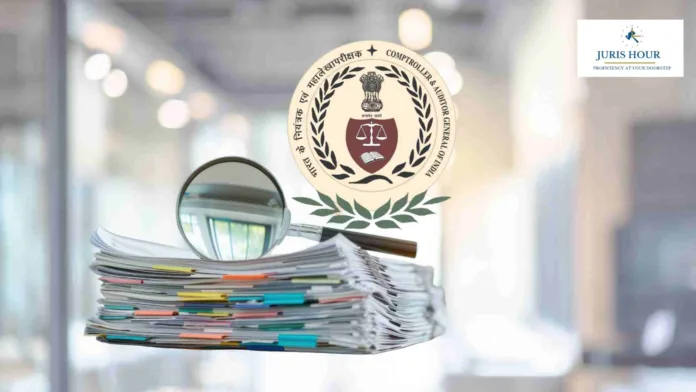In a deeply concerning trend that continues to undermine the legal boundaries set by Indian courts, the Comptroller and Auditor General of India (C&AG), through its Commercial Audit Wing (CERA), has been persistently seeking to audit private assessees under the guise of auditing departmental formations—despite multiple High Court rulings clearly holding that such powers do not exist under GST or erstwhile service tax regimes.
Despite a series of judicial pronouncements unequivocally quashing such attempts, C&AG and CERA have neither challenged these orders before the Supreme Court nor issued any clarification restraining their field officers. Instead, they have chosen to quietly accept the verdicts—only to continue the same overreach in new audits, resulting in what experts describe as a “shadow reassertion of unconstitutional authority.”
CERA Has No Authority To Conduct Audit Of The Private Assessees
Numerous High Courts, including those of Delhi, Calcutta, and Gujarat, have ruled against the practice of CERA accessing records of private assessees, stating that their mandate under Article 149 of the Constitution extends only to audits of the accounts of the Union and its departments—not of independent business entities or tax registrants.
Yet, field reports suggest that CERA continues to raise audit requisitions via the GST Ranges and Commissionerates, bypassing departmental audit procedures, and directly seeking sensitive business data from taxpayers. These audit memos are often presented in a tone that implies statutory authority—leaving both officers and assessees confused and vulnerable.
CERA Continues to Misuse Audit Channels by Coercing GST Officers
Private assessees are facing repeated and unauthorized demands for records from CERA (Central Excise Revenue Audit), even though multiple High Court rulings have clearly stated that CERA has no jurisdiction to audit or request documents directly or indirectly from private entities. These judgments, including Kiran Gems v. UOI (Bombay HC, 2021), have attained finality as they were never challenged before the Supreme Court.
Despite this, CERA continues to misuse audit channels by coercing GST officers to request records on their behalf. These tactics undermine the authority of departmental officers, creating pressure and confusion. Officers often comply to avoid negative audit remarks, even when the law is clear.
The audit powers under Section 16 of the CAG’s (DPC) Act, 1971, are limited to government accounts and do not extend to private businesses unless expressly sanctioned by the President or Governor — a condition never met or shown.
In short, CERA’s actions are legally unsustainable and amount to institutional overreach. The CBIC (Board) must issue clear instructions and stop this practice, upholding judicial discipline and protecting private entities from undue harassment.
Kiran Gems v. UOI: Bombay High Court
Issue Raised
Whether the Comptroller and Auditor General (CAG), through its wing Central Excise Revenue Audit (CERA), has jurisdiction under Section 16 of the CAG’s (Duties, Powers and Conditions of Service) Act, 1971 to audit a purely private entity such as Kiran Gems Pvt. Ltd., which is not a government undertaking.
Petitioner’s Argument
- The impugned notice dated 10.01.2019 seeking audit of accounts was without statutory basis and lacked jurisdiction.
- The audit was not conducted under Rule 5A(2) of the Service Tax Rules, 1994, which governs such audits.
- The notice relied solely on Section 16 of the CAG’s (DPC) Act, which does not authorize audit of private entities.
Departments’ Claim
- Claimed authority under Section 16 of the CAG’s (DPC) Act, arguing that CERA has the right to audit in respect of government revenue, including service tax.
What Bombay High Court Held?
- Section 72A of the Finance Act, 1994 and Rule 5A(2) of the Service Tax Rules provide a clear procedure for audit of private assessees, requiring appointment of a Chartered Accountant or Cost Accountant by the Commissioner.
- CAG’s role under Articles 148–151 of the Constitution and Section 16 of the CAG’s (DPC) Act is limited to auditing government accounts and receipts, not private company accounts.
- CERA, being an internal audit wing of the CAG, cannot directly audit private parties.
- Audit of private assessees can only be done by officers authorized under tax statutes, not by the CAG/CERA.
The Bombay High Court held that CAG/CERA has no jurisdiction to audit private entities like Kiran Gems Pvt. Ltd. under Section 16 of the CAG’s (DPC) Act, 1971. The notice issued was without authority of law and invalid.
CERA’s Encroachment into Departmental Roles
Departmental officers have increasingly found themselves in a dilemma—torn between complying with CERA’s demands and adhering to the rule of law. Many concede to CERA’s requisitions fearing adverse remarks in audit reports, which can lead to avoidable vigilance scrutiny or internal reviews.
“CERA’s current approach not only erodes the independence of GST formations but also casts doubt on the credibility of departmental audit mechanisms,” said a senior GST official on condition of anonymity. “It is a systemic subversion masked as routine oversight.”
Call for CBIC’s Intervention
Legal experts and former revenue officials are calling on the Central Board of Indirect Taxes and Customs (CBIC) to take a formal and public stand. The Board, which oversees all GST formations, must issue an explicit circular clarifying that departmental officers are not legally bound to entertain or facilitate audit requests from CERA directed at private assessees.

